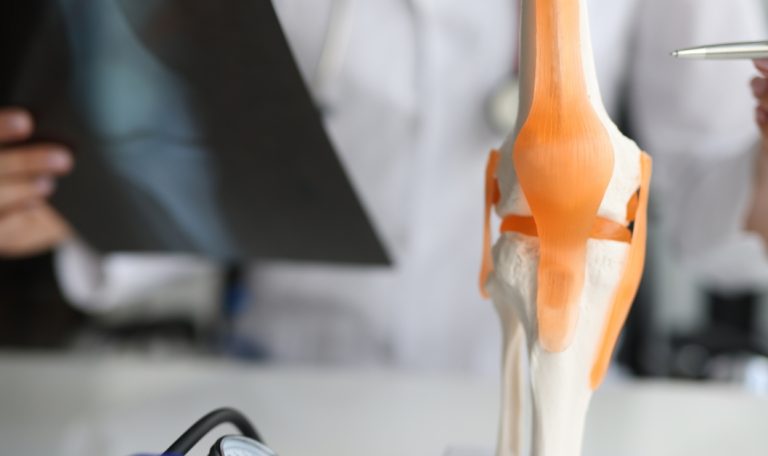Persistent knee pain, whether from overuse, arthritis, or injury, can greatly impair daily functioning and limit mobility. While some cases resolve with rest and basic care, others may signal a more serious issue that requires professional medical attention. Recognising when to consult an orthopaedic surgeon is essential for timely treatment and long-term joint health.
Let’s explore the most common causes of knee pain, warning signs that indicate you need expert help, and how a specialist can support your recovery journey.
Why Choose an Orthopaedic Surgeon Over a General Practitioner?
While general practitioners play a key role in initial diagnosis and basic treatment, an orthopaedic surgeon has advanced training in joint conditions, injuries, and surgical techniques. These specialists use a combination of detailed physical assessments and imaging tools such as X-rays and MRI scans to diagnose issues precisely. Furthermore, an orthopaedic doctor can offer a full spectrum of treatment options, from conservative therapies to minimally invasive surgery.
If your knee pain is affecting your quality of life or not improving with standard care, booking a consultation with the best orthopedic doctor in Ahmedabad ensures a targeted and effective approach to recovery.

Common Knee Pain Causes You Shouldn't Ignore
Knee pain can stem from a variety of causes, and understanding these origins is crucial in seeking the right care:
- Injury from sports, falls or accidents such as ligament tears, meniscal damage, or kneecap dislocations often results in immediate and sharp pain
- Degenerative conditions like osteoarthritis or rheumatoid arthritis cause inflammation and chronic discomfort, especially in older adults
- Overuse or repetitive strain from running, squatting, or climbing stairs can lead to tendonitis or bursitis
- Infections or inflammatory diseases, though less common, can result in swelling and severe stiffness requiring urgent intervention
While many mild cases resolve with basic care, persistent or worsening symptoms are red flags that should not be overlooked.
Signs That You Should See an Orthopaedic Surgeon
Recognising the signs that require specialist evaluation is vital.
- Persistent pain lasting more than a few weeks that does not respond to rest or over-the-counter medications
- Pain that interferes with daily routines such as walking, climbing stairs, sitting for long durations, or getting in and out of vehicles
- Knee instability or the feeling that your knee might give way when bearing weight, which may suggest ligament injuries or cartilage damage
- Reduced knee motion can make bending or straightening painful, limiting mobility in daily activities.
- Persistent swelling with redness or warmth may signal infection or inflammation needing urgent care.
- A knee that looks misshapen or bends oddly could point to internal damage that requires examination.
- Knee pain at night or while resting may disrupt sleep and suggest worsening joint or nerve issues.
Ignoring these signs may lead to worsening joint degeneration, making recovery more complex and prolonged.
What Non-Surgical Treatments May Be Recommended?
Not all knee pain cases lead to surgery. In fact, a skilled orthopaedic surgeon will first explore all conservative treatments that may offer relief without requiring invasive procedures. These may include:
- Intra-articular injections, including corticosteroids or hyaluronic acid to improve lubrication and decrease inflammation
- Supports or bracing to maintain joint stability during exercising or walking
- Lifestyle changes, including weight management and changes in activity levels to reduce knee stress
Early-stage arthritis or mild soft tissue injuries often respond well to these strategies when monitored properly.
Benefits of Early Consultation with an Orthopaedic Surgeon
Seeking specialist help at the right time provides several benefits, including:
- Appropriate therapies can prevent further damage to ligaments, cartilage, and bones
- Surgical procedures, if needed, can be performed before the joint deteriorates beyond repair
- Patients can maintain their mobility and return to normal activities sooner
- You avoid long-term dependence on pain medication and prevent mental health effects associated with chronic pain
By consulting the best orthopedic doctor in Ahmedabad, you ensure that every possible measure is explored before surgery is even considered, and that you receive customised care.
When Does Surgery Become Necessary?
Surgery may become necessary if conservative measures fail to deliver relief, or if the joint damage is severe. Indications for knee surgery include:
- Persistent pain that significantly limits daily life, even after months of physiotherapy or medication
- Major cartilage loss or bone-on-bone contact as seen in advanced arthritis
- Recurrent instability caused by torn ligaments or dislocated kneecap
- Torn meniscus or cruciate ligaments that fail to heal with rest and rehab
- Complex fractures around the knee joint
In such cases, an orthopaedic surgeon may recommend procedures such as arthroscopy for cleaning damaged tissue, ligament reconstruction for stabilising the joint, or total knee replacement for severe arthritis.
If you are already being treated for shoulder issues and experience joint pain elsewhere, it's worth noting that a good shoulder specialist in Ahmedabad may also offer a multidisciplinary approach for musculoskeletal problems that affect multiple joints.

How to Prepare for Your Orthopaedic Appointment
Take into account the following to get the most out of your consultation:
- Keep a record of your knee pain, including when it began, what triggers it, and what relieves it
- Prepare a list of treatments you've tried, like painkillers, physiotherapy, braces, or home remedies.
- Bring any previous medical reports, X-rays, or MRI scans to help the doctor assess your knee condition.
- Wear loose, comfortable clothes to allow your orthopaedic surgeon to examine your knee without restriction.
- Note down questions you have about diagnosis, recovery time, treatment options, and lifestyle changes
Your appointment is not just about the current issue, but also about creating a long-term strategy to protect joint health.
Conclusion
Knee pain should never be ignored, especially when it starts interfering with your everyday life. Whether it’s due to injury, arthritis, or strain, persistent or worsening symptoms require evaluation from a trained orthopaedic surgeon. Early consultation with a specialist ensures that all possible treatment avenues are considered before surgical options come into play. If you’re facing limitations due to knee pain, take the next step towards recovery and expert guidance.
For those seeking professional advice from a trusted orthopaedic expert, Dr. Meet Mehta offers personalised treatment plans, accurate diagnostics, and advanced care in joint health. With expertise in both knee and shoulder conditions, he ensures comprehensive solutions to help patients regain comfort and mobility.







